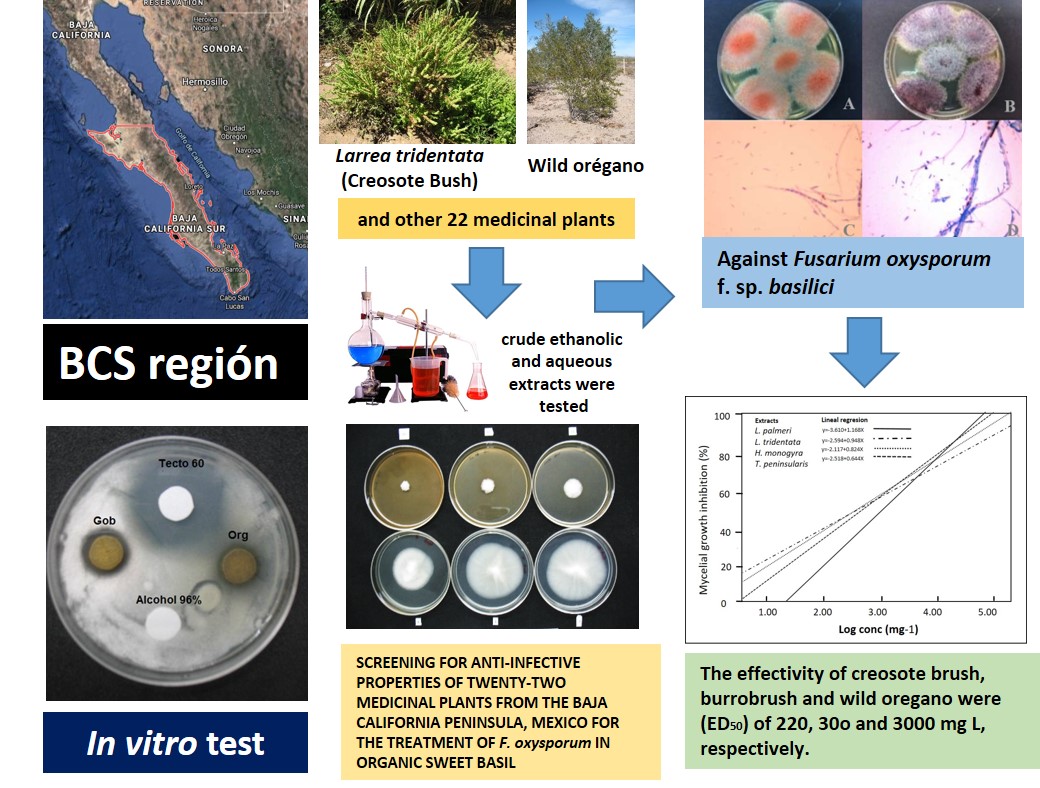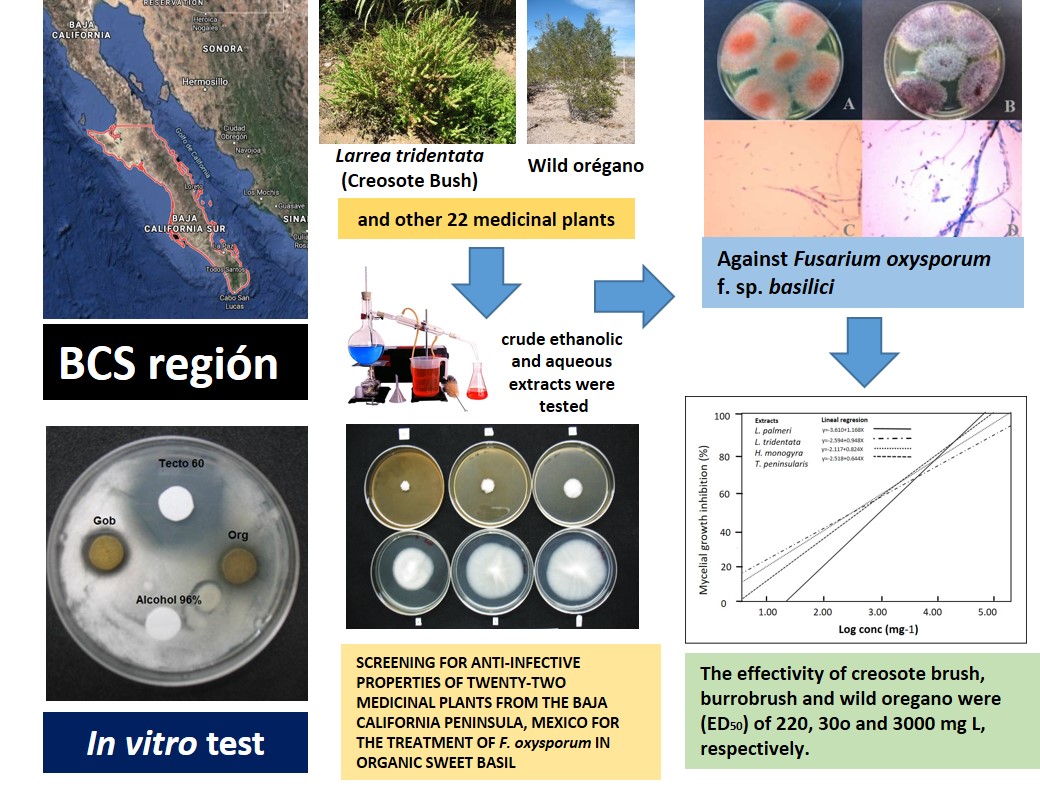Anti-infective properties of medicinal plants from the Baja California peninsula, Mexico for the treatment of Fusarium oxysporum f. sp. basilici in organic sweet basil (Ocimum basilicum)
DOI:
https://doi.org/10.48162/rev.39.022Palabras clave:
agricultura orgánica, pudrición de la corona, fusariosis, Larrea, Lippia, extractos crudos, orégano, BCSResumen

Certified-organic farming systems in Baja California Peninsula and Northwest Mexico are nationally and globally recognized, especially due to the production of vegetables and aromatic herbs under protected agriculture systems. Based on the background of some species of the flora of Baja California Sur (BCS) to inhibit a diversity of microorganisms, the effect of 22 medicinal plants of the region was explored to know the in vitro activity against the fungus Fusarium oxysporum f. sp. basilici isolated from basil (Ocimum basilicum L.). The plants processed as crude ethanolic and aqueous extracts were analyzed in duplicate (three replicates) evaluating the inhibition of mycelial growth and spore germination. In mycelial inhibition test, all plants extracts (1000 mg L-1) showed an effectiveness of 11 to 40% to inhibit F. oxysporum. The most effective plant extracts according to 50% effective inhibition dose (ED50), were Larrea tridentata, Hymenoclea monogyra and Lippia palmeri with an ED50 of 220, 303 and 3000 mg L-1, respectively. Tukey’s PostHoc tests indicated that H. monogyra and L. tridentata are ten times (ED50 <300 mg L-1) more effective than L. palmeri (ED50 3000 mg L-1). In addition, the dose-response trend analyzes according to the logarithmic-logistic model (drc packages), showed the maximum slope values between 100 and 1000 mg L-1. In the spore germination inhibition tests, most ethanolic extracts (5000 mg L-1) showed an effectiveness between 21 and 80%. The results of this study demonstrated that the inhibitory potential of these plants used in BCS traditional medicine are a viable alternative for the control of F. oxysporum f. sp. basilici in organic basil production systems.
Highlights
- 22 medicinal native plants from the Baja California peninsula can effectively inhibit (in vitro) oxysporum f. sp. basilica.
- The most effective species were Larrea tridentata, Hymenoclea monogyra and Lippia palmeri with a mycelial growth inhibition (ED50) of 220, 300 and 3000 mg L-1, respectively.
- In vitro effectiveness of Fusarium-growth inhibition of medicinal plants of BCS were in ED50 ranges from 220 to 3000 mg L-1.
- Creosote bush (L. tridentata) extract at a dose of 5000 mg L-1 can inhibit the fungal sporulation by up 80%.
- The ethanol-aqueous extract of the medicinal plants of BCS have the potential to be used for long-term control of the fusariosis disease in basil.

Descargas
Publicado
Número
Sección
Licencia
Derechos de autor 2021 Revista de la Facultad de Ciencias Agrarias UNCuyo

Esta obra está bajo una licencia internacional Creative Commons Reconocimiento-NoComercial-CompartirIgual 3.0.
Aquellos autores/as que tengan publicaciones con esta revista, aceptan las Políticas Editoriales.



